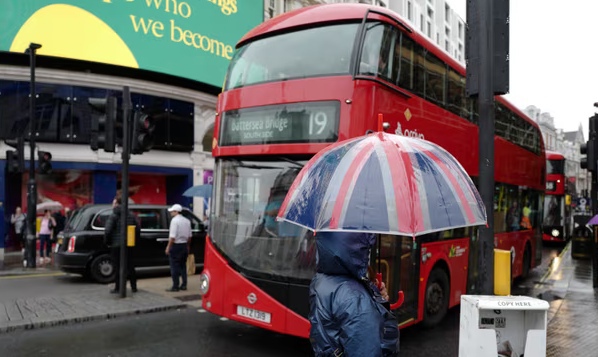The UK economy faced continued strikes and wet weather in July, hampering growth. According to National News, gross domestic product fell 0.5%, the sharpest contraction since December last year, according to the National News.
Economists had forecast a 0.2 decline in the index, after it rose 0.5% in June. Despite the July decline, “the overall picture looks more positive,” the Office for National Statistics said. ONS director of economic statistics, Darren Morgan said:
“Our initial estimate for July shows that GDP fell; however, the broader picture looks more positive, with the economy growing across the services, production and construction sectors in the last three months. In July, industrial action by healthcare workers and teachers negatively impacted services, and it was a weaker month for construction and retail due to the poor weather. Manufacturing also fell back following its rebound from the effect of May’s extra bank holiday.”
All three key areas of the economy – services, construction and manufacturing had declines in July, according to the ONS. Falling activity in the services sector was the main reason for the latest monthly decline, according to the statistical body.
In the health and social work sector figures fell by 2.1% over the month as a result of a strike by senior NHS doctors and radiographers, as well as an increase in the number of days of strike action by junior doctors.
The education sector also recorded a 1.1% drop for the month as the sector was hit by two days of strikes. Other sectors such as retail and accommodation also saw a fall as consumer sentiment was hit by poor weather.
However, thanks to a busy schedule of sporting events and “increased visits to theme parks,” this month was more favorable for the arts and entertainment industry. Chancellor Jeremy Hunt said:
“Only by halving inflation can we deliver the sustainable growth and pay rises that the country needs. But there are many reasons to be confident about the future. We were among the fastest in the G7 to recover from the pandemic, and the International Monetary Fund has said we will grow faster than Germany, France and Italy in the long term.” However, Labour’s shadow chancellor Rachel Reeves said the release of the data was “another dismal day for growth”.
Alice Haine, Personal Finance Analyst at Bestinvest, the DIY investment platform and coaching service said that despite the many threats this year, the UK economy remains resilient. She added:
“The road ahead looks less forgiving, however, with interest rates now at their highest level in 15 years and expected to jump again by 25 basis points when the Monetary Policy Committee meets again later this month – a move designed to constrain demand and expenditure in the economy.”
Craig Erlam, Senior Market Analyst at OANDA said it is doubtful whether the data will “sway” the Bank of England when it meets next week to discuss interest rates, particularly against the backdrop of strong wage growth, as was reported yesterday.
The Governor of the Bank of England and his colleagues believe that the discussion will be more balanced than people seem to think, suggesting that a rate hold will be discussed this month. It seems a bit far-fetched at this stage, those words are probably intended for a later date in November. However, then it wouldn’t be the first time the Bank of England has surprised us. It’s also not the first time they’ve hinted at something but not done it.
